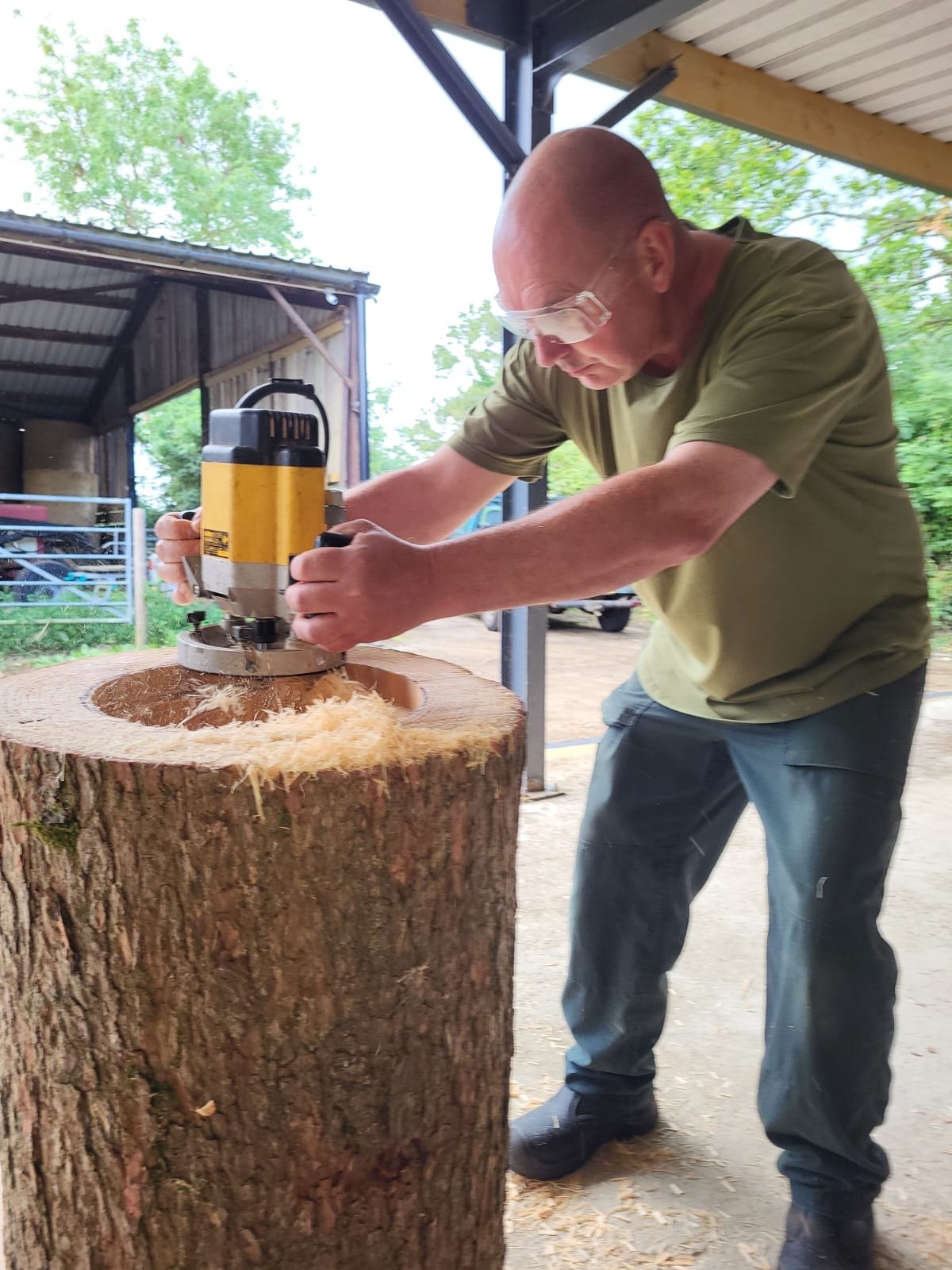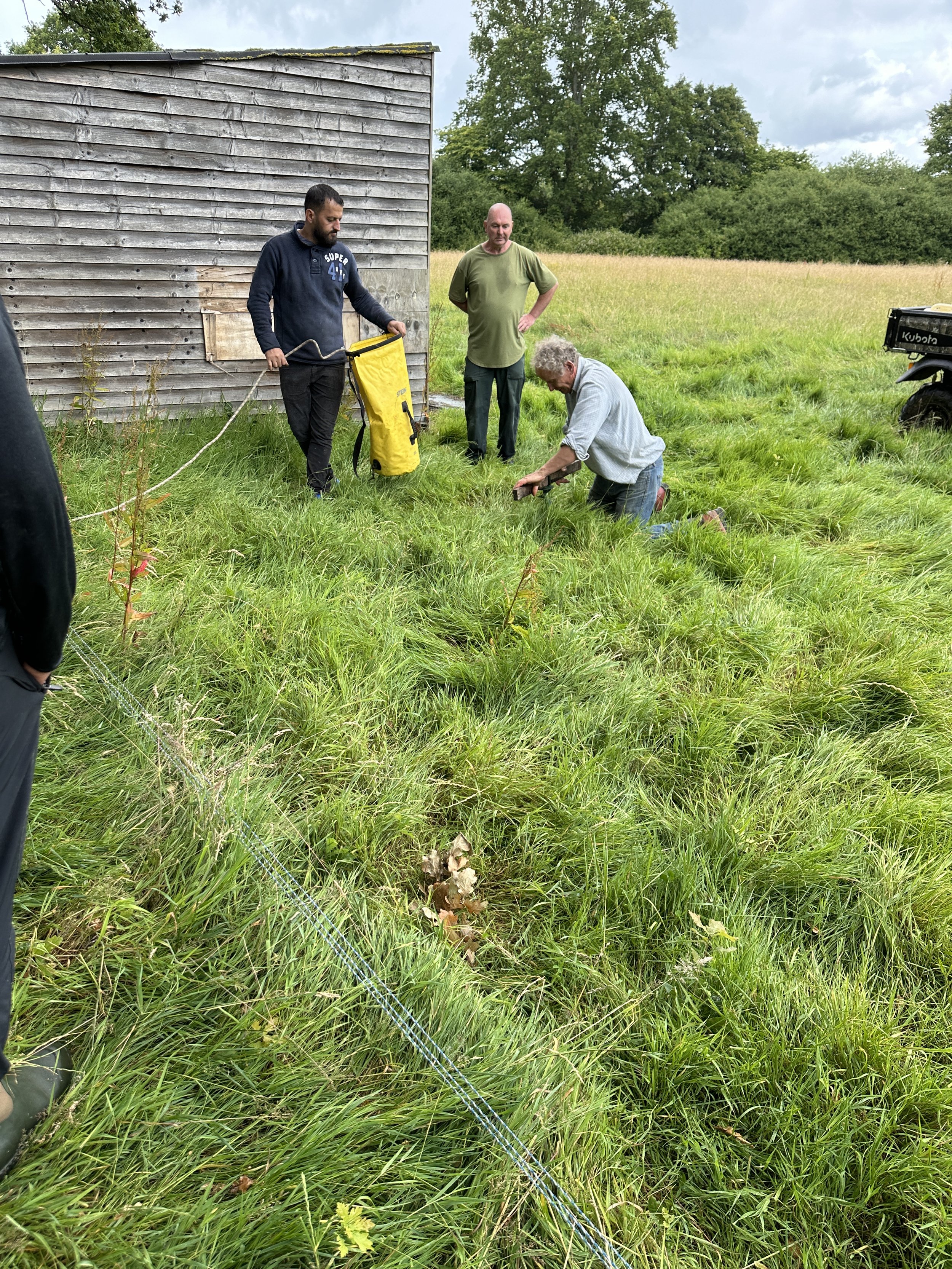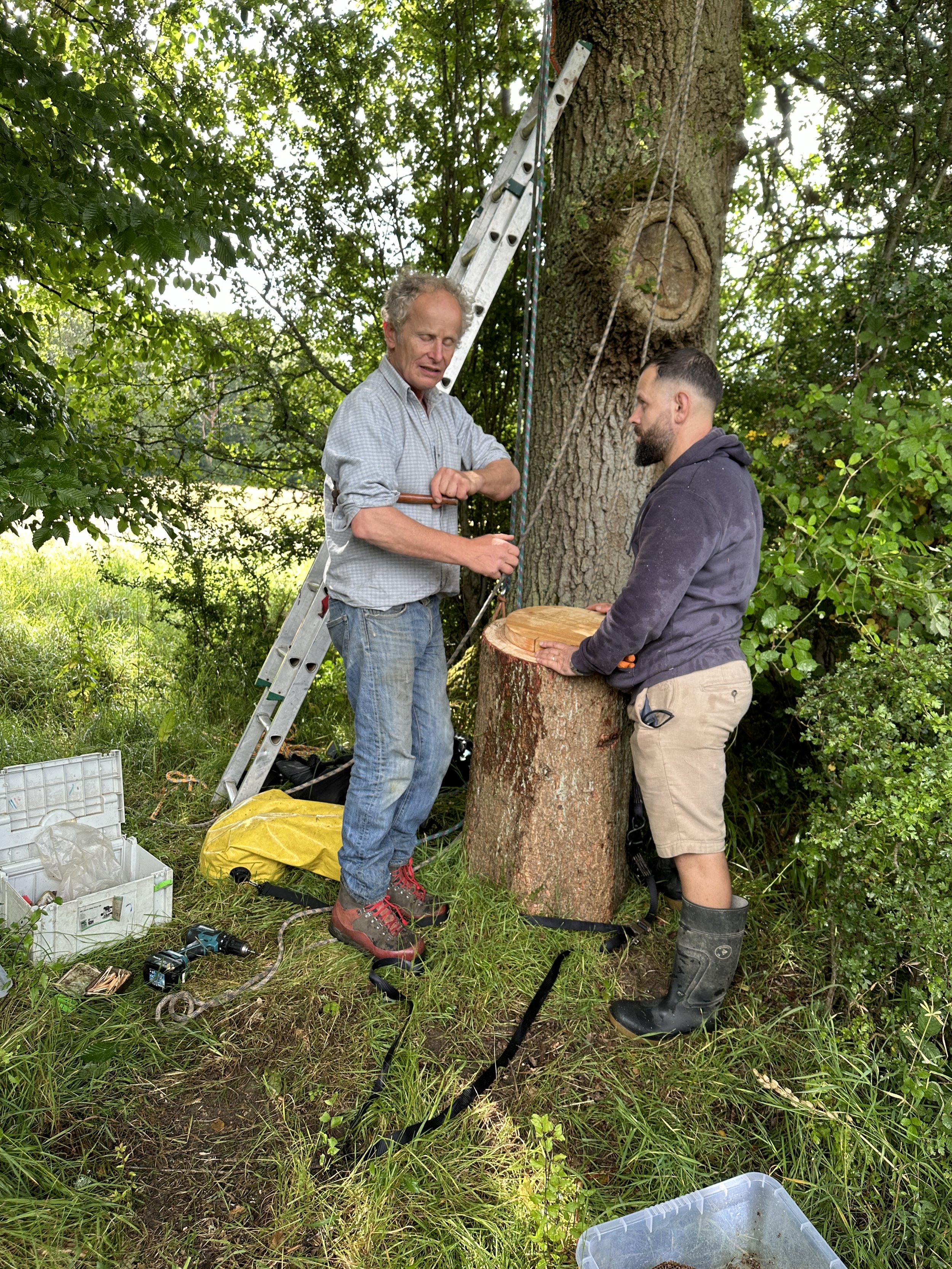We Are Literally Buzzing!
Earlier this year in February, we were fortunate to be awarded a grant from Surrey Hills Trust, via the Community Foundation for Surrey which enabled us to kick start our project to help provide more bee-centric habitats for honey bees. Wild bees desperately need our help due to the serious loss of natural habitat, the continuous use of poisonous agricultural pesticides and significant lack of organic forage. Those factors alongside a range of other issues such as human husbandry, disease and climate conditions, have an adverse impact on their wellbeing and ability to survive.
Our project was organised in 2 phases.
Phase 1 - Springtime 2024. We purchased 2 Eco Hives, made by natural bee keeper (or bee minder) Simon Kellam, which were erected into 2 trees. We also purchased 2 bespoke notice boards that we placed close to the hives along a public foothpath running through our land to enable passers by to learn about the needs of wild honey bees, and understand the current lack of quality habitat that exists in the UK. These hives were both successfully populated by wild bee colonies within 2 weeks from installation, and we knew then that we needed more.
We had the option of ordering more ready-made hives with the balance of the grant, but we decided that we could potentially achieve more by using the grant to fund a hive-making workshop to teach people how to make the hives, and ultimately help more bees in the future (whilst still achieving the outcome of adding 3 new log hives to our site). So, with that in mind we contacted expert natural beekeeper, Matt Sommerville, who agreed to deliver the workshop, and this was scheduled for 6th and 7th July.
Phase 2 - Summertime 2024
Whilst the July weather wasn’t the greatest, it didn’t hold us back; our highly-motivated team of participants worked in pairs and crafted 3 new, natural-style log hives.
We started the process on day 1, with 3 sawn Larch logs which our team hollowed out using traditional gouge tools, and finished off with some carpentry elements, later adding some old comb and propolis to encourage the bees to find them. Matt was a wonderful instructor, and everyone was able to complete their log hive by mid afternoon which gave us time to install the first one that day (before the football started!)
Day 2 - The next step was all about identifying the locations for installing the remaining hives amongst the mature oak trees here at our beautiful rewilding site. Erecting the hives called for tree climbing and hauling up the hives using a pulley system with ropes. Once in place, Matt secured them with straps, and within minutes, scout bees arrived to check them out!
The following photos show our participants in action, making knots for the pulley system, prepping the hives, and of course, Matt climbing the trees to make sure they were placed in the right spot, with the entrance holes facing South East, which is preferred by the bees.
No sooner had the hives been installed we were delighted to see some scout bees checking out their potential new homes.
It is quite late in the year for honey bee swarms to arrive, however we are hopeful that bees will take up residence permanently in our log hives creating new colonies here. We also identified a queen cell in one of our hives that was installed earlier in Spring, so it is possible that we may be lucky and a swarm could be on its way soon!
We couldn’t have asked for more from this weekend. Everyone gave 100% and made this important event a great experience for all. New networking opportunities have also been created, and we plan to host more events like this next year.
It was truly inspiring and wonderful. We will keep you posted on our progress!
Wild honey bees scouting the newly installed log hives






























